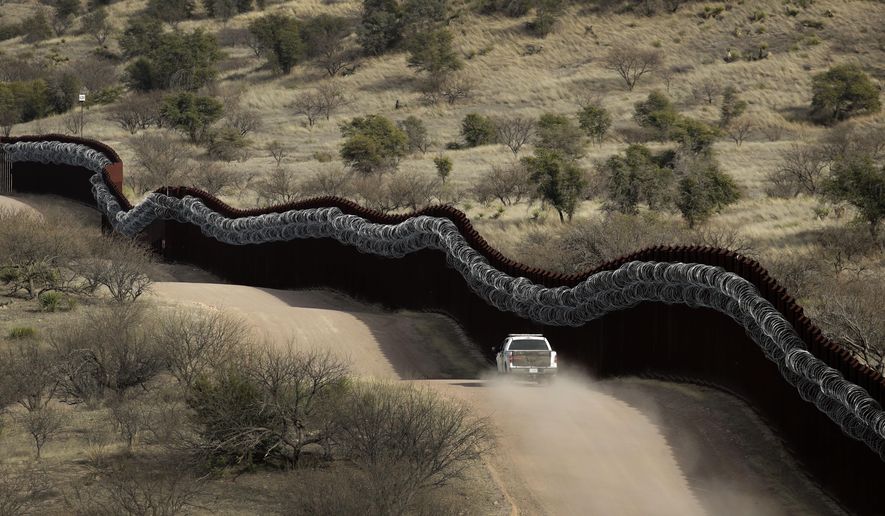Homeland Security Secretary Alejandro Mayorkas testified to Congress this week that Border Patrol agents aren’t necessarily fans of the border wall.
The head of the agents’ union says that’s just not true.
“I do not know of one individual that does not think the wall works,” said Brandon Judd, an agent who is also president of the National Border Patrol Council, representing thousands of line agents.
That does not mean the wall is the top priority for all of them, he said. Some see other parts of the “wall system” the Trump administration was pursuing, such as the high-speed roads or technology, as more helpful. But that doesn’t mean they don’t think the wall is also helpful.
“The effectiveness of walls, I do not know of one Border Patrol agent that does not think walls allow us to dictate where border crossings take place,” he said.
President Biden has canceled some funding for wall construction and put the rest on hold as he seeks to unwind most of his predecessor’s immigration moves.
During a hearing with the House Homeland Security Committee on Thursday, a Republican congressman challenged Mr. Mayorkas to restart the construction.
“No, I will not,” Mr. Mayorkas responded.
Rep. Carlos Gimenez, the Florida congressman, said he’d heard agents tell him the wall “is definitely something that they could use, something that they want.”
“That is not the response of the United States Border Patrol with unanimity,” Mr. Mayorkas replied, then cited the late Sen. John McCain who Mr. Mayorkas said supported a modernized border security system.
In fact, Mr. McCain voted repeatedly for border walls. Even Mr. Biden, as a senator, voted for 700 miles of double-tier fencing or wall, and as vice president was part of an administration that built wall.
Mr. Judd, the Border Patrol union chief, said there’s a reason walls have enjoyed support — they work.
In Arizona, during a one-week period in January, areas of the border where wall has been largely completed had a capture rate of about 75%, meaning only a quarter of known illegal immigrants got away. In the areas where there isn’t as much wall, the apprehension rate was about 46%, meaning more than half of known border jumpers got away.
The area with wall also saw far fewer attempts.
Mr. Judd says that’s because walls help dictate where folks attempt to cross, giving agents more of a chance to respond in time to nab those that do make it across.
Roads also help, by speeding the ability to reach locations, and technology gives more awareness of what’s going on.
• Stephen Dinan can be reached at sdinan@washingtontimes.com.




Please read our comment policy before commenting.